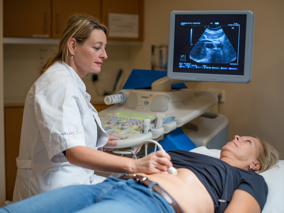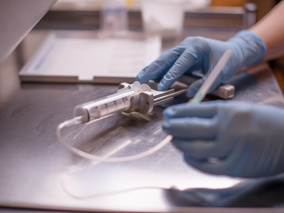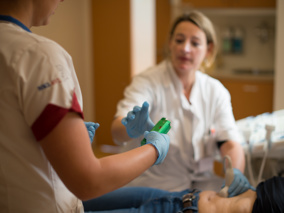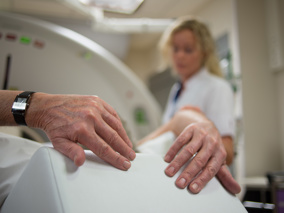Laryngeal cancer
Laryngeal cancer is a type of mucosal cancer that develops from the vocal cords or larynx.
On this page you can read more about the symptoms and the most commonly used examinations and forms of treatment for laryngeal cancer.
Visit our NKI Head and Neck Cancer Center and read more about our specialists, patient satisfaction, news and innovation.
Learn more about laryngeal cancer
Causes of laryngeal cancer
Cancer in the larynx is more common in men than in women. Most people are over 50 years old when they are diagnosed. Smoking and alcohol increase the risk of laryngeal cancer. Also, if someone in your family has had lung cancer or throat cancer, you are more likely to develop laryngeal cancer.
Symptoms of laryngeal cancer
A tumor in the vocal cords can cause hoarseness and difficulty breathing (shortness of breath). As the tumor grows, it can cause pain that radiates to the ears.
A tumor near the larynx can cause complaints when swallowing, pain and difficulty breathing (shortness of breath). The pain may radiate to your ears.
Waiting
We want to inform you as well as possible about the waiting time per condition. We do this based on a prognosis of the current waiting list. The waiting time can vary from patient to patient for various reasons. Your attending physician will give you more information during your outpatient consultation.
-
5 days
First appointment
This is approximately how long it will take until you have your first appointment
-
5 days
Rapid diagnostics
This is approximately how long it will take before you can start rapid diagnostics at the NKI
-
7 days
Second opinion
This is approximately how long it will take before you come in for a second opinion at the NKI
 nl
nl






